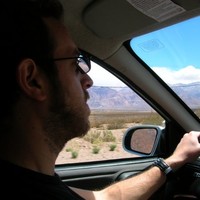 Rafael Kaufmann
Rafael Kaufmann
Product Operations Manager
Google
The “never” normal, the age of disruption, late-stage capitalism, VUCA (Volatility, Uncertainty Complexity and Ambiguity) world: Our era is not lacking in labels, nor in excitement. The apocryphal “Chinese” curse definitely applies: we’re living in interesting times. If you’re a median manager, you’ve spent most of your life in a stable, democratic country, as part of an educated elite; you may have seen true disruption on the TV, but you’ve been continuously shielded from the worst effects of it. Until now.
If we needed any more proof that no one is safe from VUCA, just watch the world’s most powerful country brought to its knees by a pandemic, and its president hospitalized a month away from Election Day. So it is with cities: watch New York City, the world’s financial center and home of Billionaire Row, try to survive the triple-whammy of COVID onslaught, downward-spiraling tax revenue, and growing costs from climate chaos. And so it is with businesses in every industry, even the most stable and established.
So how can we be strategic in this reality?
The future is faster – and crazier – than you think
The bad news is that the world is not going to get boring again any time soon; indeed, it’s going to get worse before it gets better:
- According to Geoffrey West, technology is developing hyper-exponentially – meaning that the predictable, gradual change that allowed us to write nice strategies and innovation roadmaps is gone: everything is a hockey-stick. The joint onslaught of AI, quantum computing, nanotech, biotech, neuro-tech, and soon fusion energy, will up-end every industry and cause outdated economic structures to collapse.
- Ray Dalio of Bridgewater, after analyzing the large-scale dynamics of economies and societies over centuries, places us at the cusp of an enormous transition away from an era of stability and American dominance, and into a protracted period of crisis and rapid power shifts, before a new world order emerges.
- As is now clear, our environment is also in rapid transition. Whether triggered by human activity or by other factors, large-scale ecological and climatic processes are in motion that cannot be immediately reverted, and that will completely disrupt the basic functioning assumptions of societies and economies. The California wildfires that have turned Silicon Valley into Mars for a week are just a harbinger of things to come.
- And then there are exogenous large-scale events, such as coronal mass ejections (aka solar storms), earthquakes and – of course – pandemics. Such events can’t be prevented – or even predicted with much advance notice; therefore, our only choice as a society is to be prepared. Yet we continue to systematically underinvest in preparedness.
If you’re thinking the above is implausibly catastrophic, know that it’s your brain playing tricks on you. Attempting to conceive of a world where disruption reigns may be literally inconceivable: it is the opposite of what our pattern-seeking primate brains are wired to do.
Unsurprisingly, most people – and most organizations – respond by putting on blinders, retreating to a microcosm where they can have control over outcomes: the world of the short-term and zero-sum, with its petty disputes and day-to-day problems. In this world, organizations lose all ability to do any kind of meaningful strategy: business becomes a race to the bottom; we are told to “fight harder.” for upsides and competitive advantages ever more temporary and tenuous.
As strategic leaders, we don’t have the option of pursuing this path. Nor do we buy into the hope that a deus ex machina will reverse the course of history (“if we only elect the right president…”). Our only choice is to face reality and act with eyes wide open. But how?
The harder we fall, the greater we become
We do it by realizing that, in the long run, progress wins. Dalio’s Big Cycles aren’t a karmic wheel that brings us back to where we started; they are an upward spiral, where each fall creates the impulse for the system to reach ever greater heights on the next upswing. I don’t want to minimize the pain and suffering of our present times and of the coming decades, but if there’s one consolation, it’s that humanity will emerge stronger and more prosperous. Waves of creative destruction will allow us to break away from outdated economic structures and equally crusty worldviews. Those same technologies that will cause short-term disruption will eventually generate enormous abundance and efficiency. Our environment will eventually repair itself – and we can help, by leveraging both innovative technologies and timeless wisdom.
Be the change
By focusing on the long-term, we (and our organizations) can not only escape the troughs of despair and the trap of non-zeroism, but find a truly motivating purpose: to be part of building the future. Even as the old world falls apart, we can see – and help sow – the seeds of reconstruction. Projects, technologies, movements and organizations are being born now that, in the coming decades, will grow into the cornerstones of our future prosperity.
In some fields, such as energy, agriculture and construction, we already have an emerging sense of what needs to be done; in others, such as financial capital and organizational science (and indeed in politics), the future vision is much more incipient. In all cases, this long maturity horizon provides us with an enormous runway to build momentum.
We have a decades-long learning opportunity ahead of us; we can use it to experiment and build the capabilities – teams, structures, skills – that will best serve us in the new world. To mature as individuals and organizations; to truly internalize this new purpose, and to develop great mastery, so we can flexibly redeploy wherever and however this purpose requires of us.
Strategy is an act of courage
“Fear is the mind-killer.” – Frank Herbert, Dune
Let’s get real: there is no guarantee of success. It may well be that most organizations – including yours – are destined to be victims of disruption. Recognizing and acting in the face of overwhelming odds – that takes true courage. As Peter Senge says, there are two types of vision: negative (fear-based, “anti-“, downside-oriented, problem-solving), and positive (aspiration-based, “pro-“, upside-oriented, dream-seeking). The task of strategic leaders is to build a positive vision, hold the “creative tension” between that vision and harsh reality, and use that tension as a source of potential energy to chart a course towards your aspirations.
Again, this is a new muscle for people and organizations born and raised in an environment where the game is domination at the top and conformity at the bottom, where relationships are transactional and political, and where “strategy” often equates to wishful thinking, good intentions, or 20/20 hindsight. But it is a muscle that can be developed, by taking responsibility – for yourself, for your team, for your organization, for the world. As Fred Kofman says:
“If you want to be the captain of your business and your life, you must accept full responsibility, accountability, and ownership for everything that happens in it. Rather than being a victim of external circumstances, you must be the master of your actions—the one who makes choices and produces consequences with ultimate response-ability.”
From this personal grounding of persistent growth-orientation – Senge’s personal mastery – you become a nexus for a web of trust reaching your peers, subordinates, and bosses. This web develops slowly at first, against headwinds of skepticism; but in the long run, integrity is rewarded: through long-lasting success, truly deep learning, and the knowledge that you did the right thing, together.
We have all been shaken out of our seats. Now decide: will you give up and fall down, or will you stand up and walk?
Rafael is an experienced entrepreneur, chief technical officer, product manager, business consultant and occasional technical lead. Currently a Product Operations Manager at Google, NYC, he is passionate about the future of work: scaling collaboration, accelerating innovation, and creating global optima through individual and organizational transformation. Contact Rafael at rkauf.me



Recent Comments